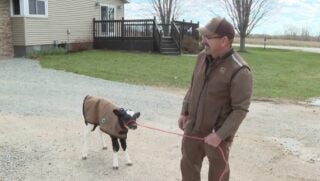President Donald Trump’s decision to pull the U.S. from the historic Paris Agreement — an accord among 192 nations dealing with greenhouse gas emissions mitigation, adaptation, and finance starting in the year 2020 — was met with both optimism and disapproval from ag.
USDA Secretary Sonny Perdue had this to say:
“President Trump promised that he would put America first and he has rightly determined that the Paris accord was not in the best interests of the United States. In addition to costing our economy trillions of dollars and millions of jobs, the accord also represented a willful and voluntary ceding of our national sovereignty. The agreement would have had negligible impact on world temperatures, especially since other countries and major world economies were not being held to the same stringent standards as the United States.
“The Earth’s climate has been changing since the planet was formed – on this there is no disagreement. At USDA, we rely on sound science and we remain firmly committed to digging ever deeper into research to develop better methods of agricultural production in that changing climate. Floods, droughts, and natural disasters are a fact of life for farmers, ranchers, and foresters. They have persevered in the past, and they will adapt in the future – with the assistance of the scientists and experts at USDA. To be effective, our research and programs need to be focused on finding solutions and providing state-of-the-art technologies to improve management decisions on farm and on forest lands.”
National Farmers Union (NFU) President Roger Johnson said the President’s decision rejects science and U.S. leadership in an effort that requires global attention.
“Today’s decision by the Trump Administration is shameful, and it fails to recognize the very real and immediate threats of climate change to family farmers, ranchers, and our nation’s food security,” said Johnson. “We can not sustain a viable food system if climate change is left unchecked. By refusing to limit U.S. greenhouse gas emissions and lead the world in this space, President Trump is allowing increasingly unpredictable and destructive weather to wreak havoc on family farm operations, future generations, and food prices and availability for years to come.
“This action also has enormous implications for our nation’s credibility,” he added. “It is nearly inconceivable that the U.S. would repudiate sound science that the rest of the world has accepted and abdicate our leadership on an issue of such great importance.”
Under the Paris Agreement, the U.S. pledged to reduce greenhouse gas emissions by at least 26 percent by 2025. NFU believes that many of the actions that would have helped the U.S. achieve that goal would have stimulated economic growth in rural communities.
“When properly incentivized, farmers, ranchers, and forest owners have tremendous potential to sequester carbon and contribute to the mitigation of climate change,” said Johnson. “By taking away the opportunity for such revenue streams, the President has stripped rural America of valuable opportunities to confront the current farm crisis and stem the exodus of young people from rural communities.”


